Morning Energy Reboot
Morning Energy Reboot: Bounce Back After Hot Flash Nights
By Nura Noor • Updated September 22, 2025
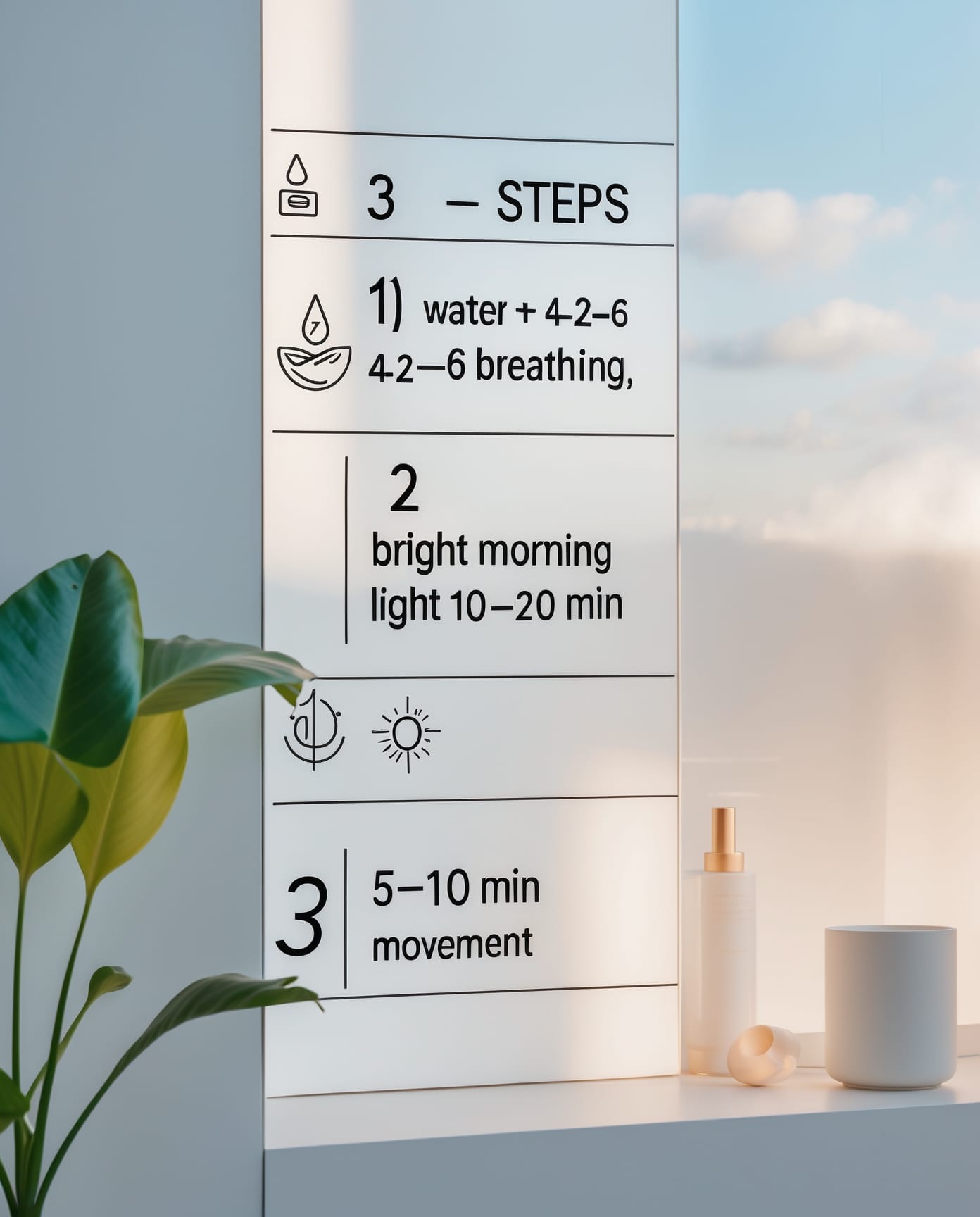
Optional: Early-afternoon power nap (10–20 min) if you’re dragging.
Last night was rough—your day doesn’t have to be. With a light-lift morning plan, you can reset energy, mood, and focus without wrecking tonight’s sleep. This is your post–night sweats comeback routine.
Step 1 — Hydrate First
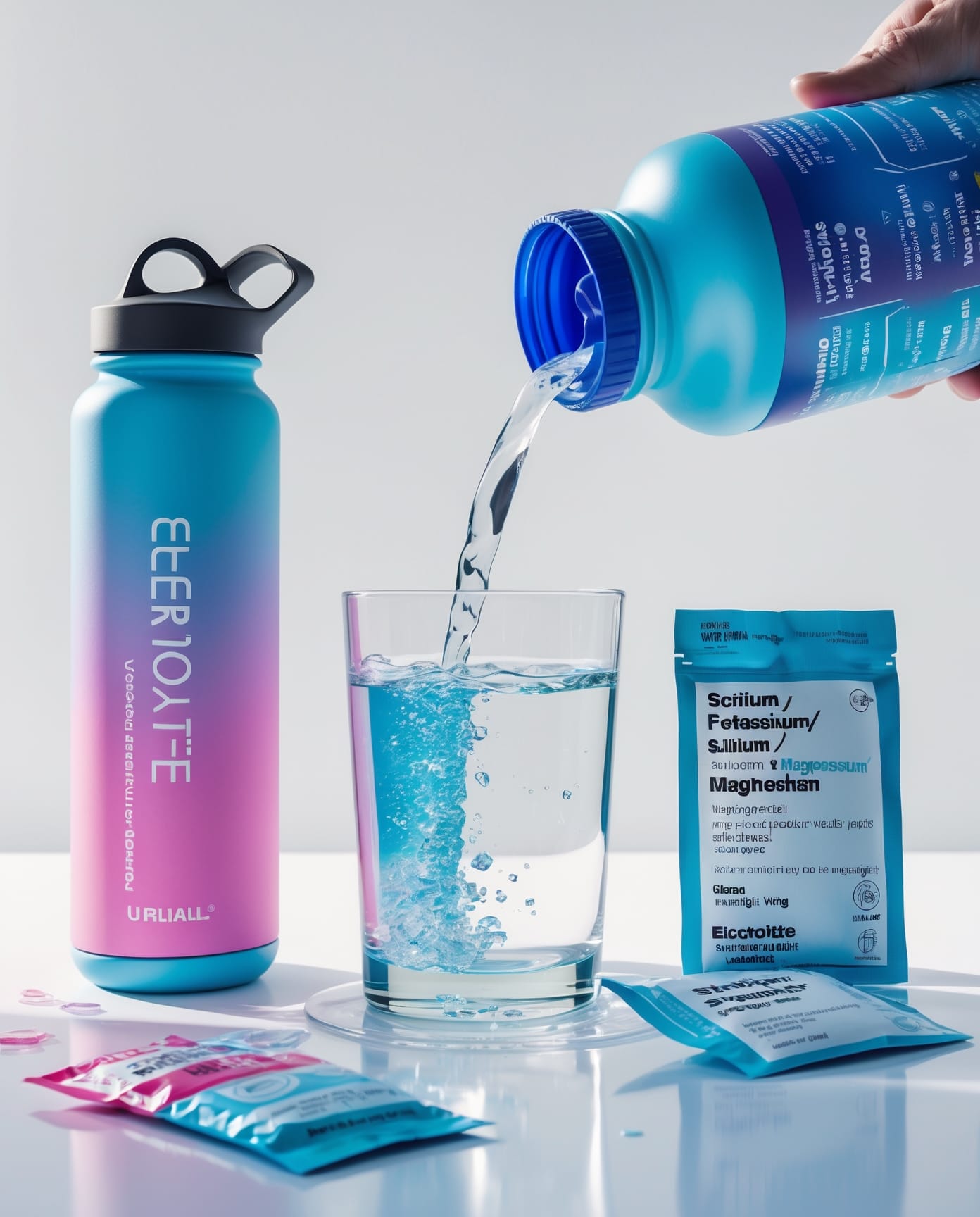
Drink 12–16 oz of water right away. If you woke up drenched, consider a small electrolyte boost. Mild dehydration (~1–2% fluid loss) can drag down mood and attention.
Step 2 — Get Bright Morning Light
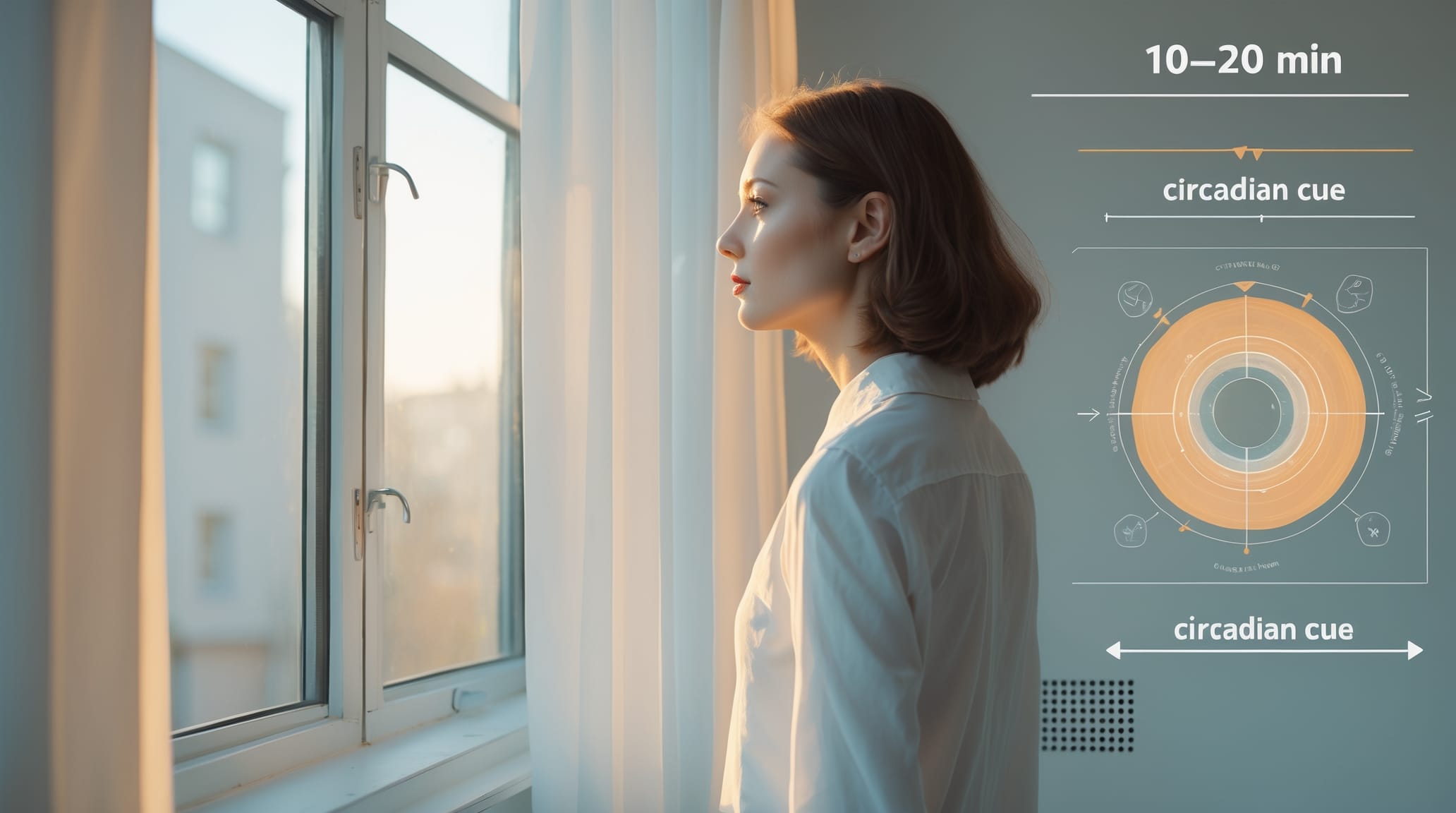
Step outside or sit by a bright window for 10–20 minutes. Morning light advances your body clock and helps the day feel easier.
Step 3 — Gentle Movement
Two to five minutes of easy walking, a quick mobility flow, or a few flights of stairs is enough. We’re chasing blood flow—not sweat.
2-Minute Office Bathroom Reset
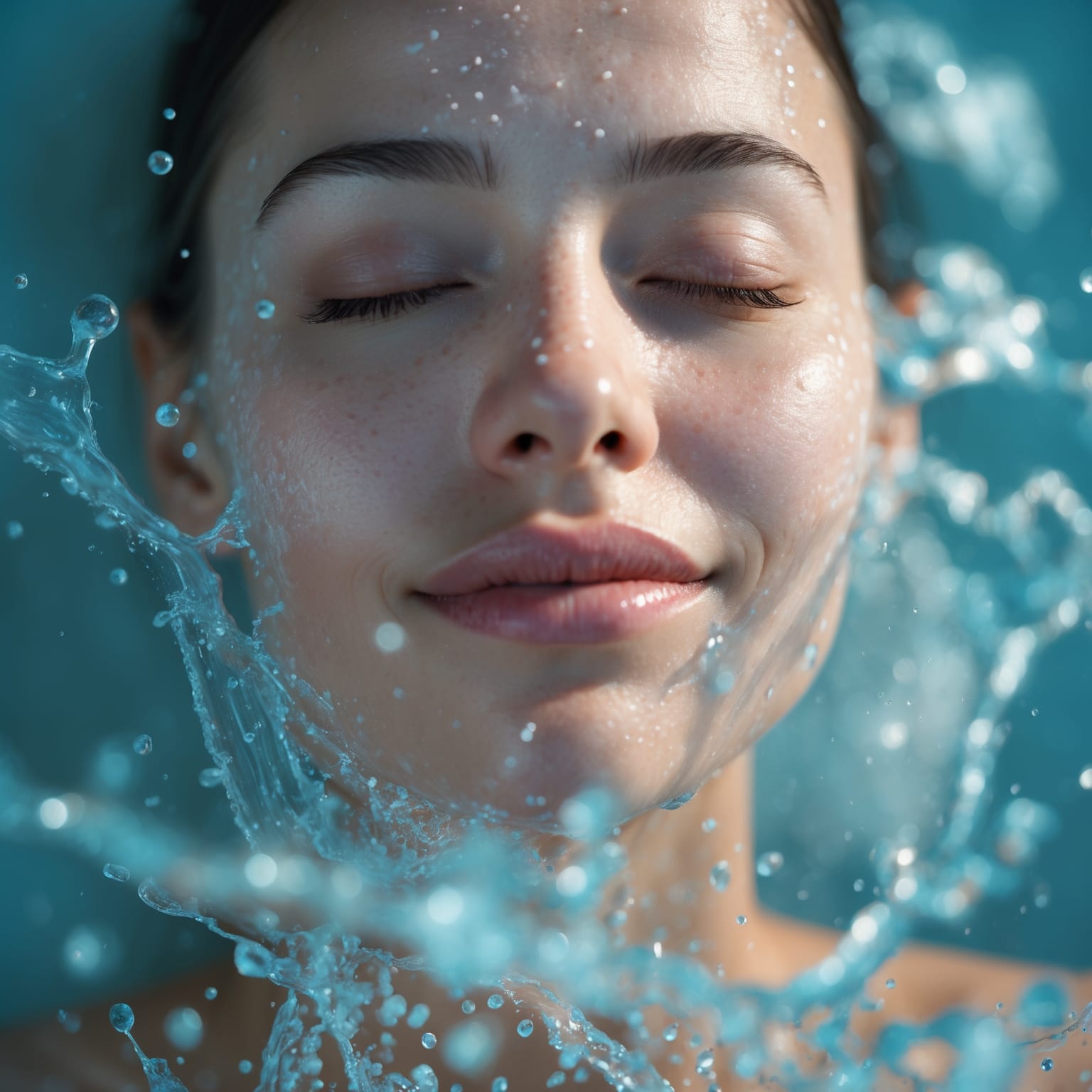
- Cool rinse: Cold water on wrists/neck for 30–60 seconds.
- Breath: 4-2-6 pattern (inhale 4, hold 2, exhale 6) for 1–2 minutes.
- Optional: A light mist spritz and pat dry.
Handy, low-profile tools: YQXCC Cooling Towels, Lavaderm Cooling Mist.
Power Nap (10–20 min, before 3 PM)
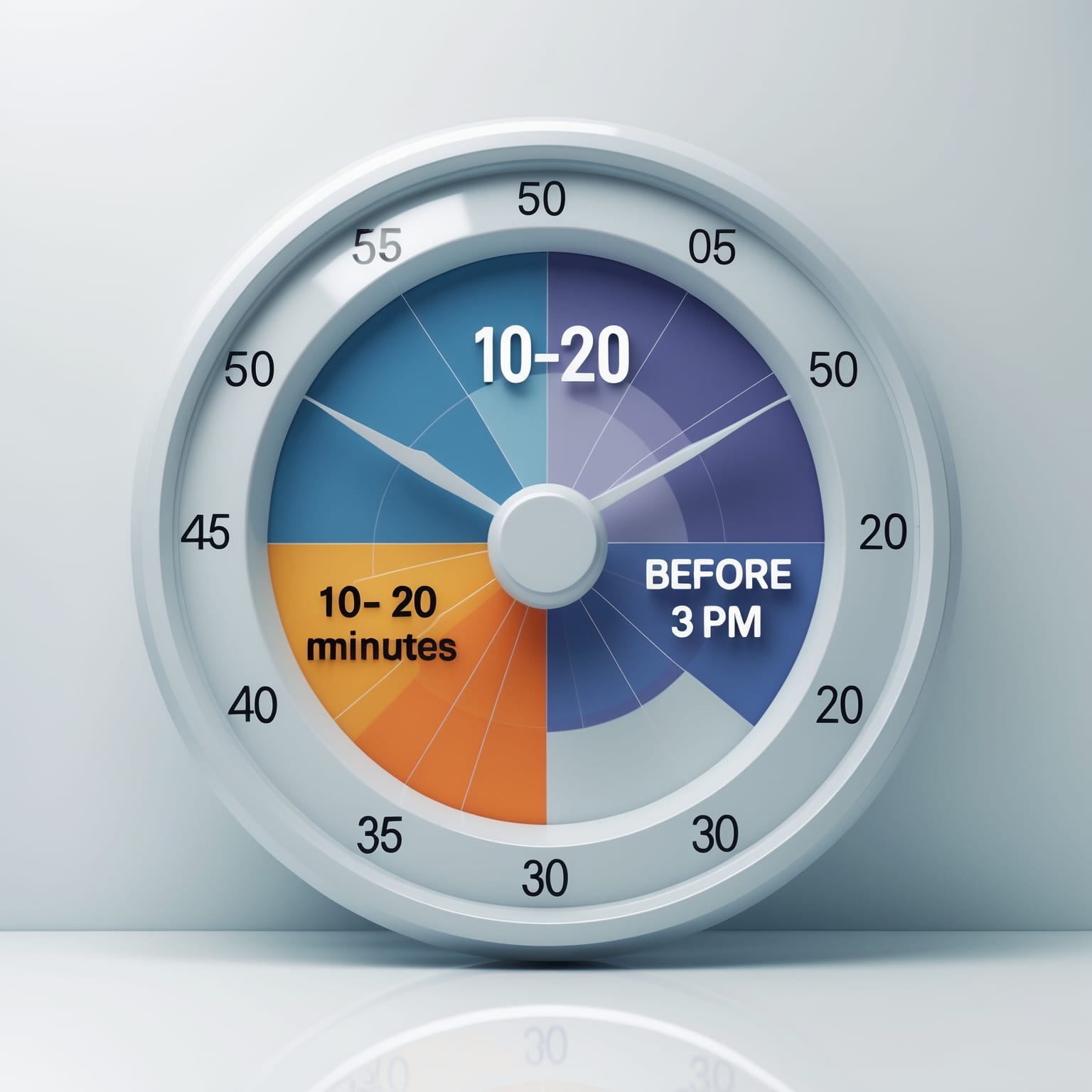
Keep naps short (10–20 minutes) and early (ideally before 3 PM). That’s enough to lift alertness without crashing tonight’s sleep.
Midday Energy Stack
- Move for 3: A quick hallway lap, stairs, or two mobility drills.
- Light lunch: Protein + fiber; go easy on sugar to avoid the slump.
- Personal airflow: If you run warm, a whisper-quiet wearable fan helps. Try JISULIFE Portable Neck Fan.
Mini CBT-I: Nights That Don’t Spiral
If you’re awake and frustrated for ~20 minutes, don’t wrestle the pillow. Leave bed, keep lights dim (skip phones), do something calm (paper pages, breathwork). Return when sleepy. This breaks the “bed = stress” loop and rebuilds sleep drive. Bonus: protect the evening by dimming screens 60–90 minutes before bed—blue-heavy light delays melatonin and pushes sleep later.
Join the FREE 5-Day Hot Flash Reset →
FAQ
Will a nap make tonight’s sleep worse?
Short, early naps (10–20 min) generally help alertness without harming sleep. Keep it before 3 PM and set a timer.
Why do screens at night make me feel wired?
Evening bright light (and blue-heavy screens) suppresses melatonin and delays your body clock, which can push bedtime later and fragment sleep.
Do I need electrolytes every morning?
No. Plain water is great for most days. If you woke sweaty or feel light-headed, a small electrolyte boost can help. If you have kidney or blood pressure concerns, ask your clinician first.
Citations
- Chang A-M, et al. Evening use of light-emitting eReaders negatively affects sleep, circadian timing, and next-morning alertness. PNAS (2015). PubMed
- Armstrong LE, et al. Mild dehydration affects mood in healthy young women. J Nutr (2012). PubMed
- Ganio MS, et al. Mild dehydration impairs cognitive performance and mood of men. Br J Nutr (2011). PubMed
- Corbett RW, et al. An hour of bright white light in the early morning improves performance and advances sleep/circadian phase. Neurosci Lett (2012). PubMed
- He M, et al. Morning bright light and office worker sleep/alertness. J Sleep Res (2023). PubMed
- McCurry SM, et al. CBT-I for peri/postmenopausal women with vasomotor symptoms: RCT. JAMA Intern Med (2016). JAMA
- Rosekind MR, et al. NASA Ames studies on planned cockpit rest. NASA
- Harvard Health Publishing. Science behind power naps (2024). Harvard Health